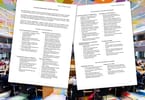We have been writing about the injured travelers’ rights and remedies for nearly thirty-nine years [see Travel Law, ALM Press (2014) and, in particular, about the injured cruise passengers’ rights [see The Cruise Passengers’ Rights and Remedies 2014 available at www.nycourts.gov/courts/9jd/taxcertatd.shtml]. One area of Travel Law which has been, especially, unjust has been the routine enforcement by U.S. Courts of the admiralty principal that cruise ships cannot be held vicariously liable for the medical malpractice of the ship’s medical staff [see Barbetta v. S/S Bermuda Star ( cruise ship not liable for medical malpractice of ship’s doctor in failing to discover during treatment that passenger had diabetes ); Stires v. Carnival Corp. ( medical malpractice claim against cruise ship for “ negligent acts of the ship’s doctor and nurse “ dismissed ); Cimini v. Italia Crociere International( cruise ship disclaimer of liability for malpractice of ship’s doctor enforced )].
We are pleased to announce that the U.S. Court of Appeals for the Eleventh Circuit has in Franza v. Royal Caribbean Cruises, Ltd. (11/10/2014) abrogated the much criticized rule in the Barbetta case finding that cruise lines may be held liable for the medical malpractice of ship board medical staff under the legal theories of both actual and apparent agency. This is very good news, indeed, for cruise passengers,
The Barbetta Rule
The Barbetta rule meant that cruise passengers who suffered injuries from the malpractice of ship board medical staff were, in effect, left without a remedy since medical staff, often foreign nationals not residing in the U.S., were, typically, both beyond the jurisdiction of U.S. Courts and judgment proof and in addition, their employer, the cruise line, was insulated from vicarious liability. The Barbetta rule has been routinely followed by almost all U.S. Courts with a few exceptions [see Nietes v. American President Lines, Ltd. ( cruise ship vicariously liable for medical malpractice of ship’s doctor who was a member of the crew ); Fairley v. Royal Cruise Line Ltd. ( cruise ship may be liable for medical practice of ship’s doctor ); Herschaft, Cruise Ship Medical Malpractice Cases: Must Admiralty Courts Steer By The Star Of Stare Decisis ( “ It would be in the best interests of the traveling public for admiralty courts to revoke this harsh policy of holding carriers harmless for the torts of physicians engaged by them. However, if admiralty courts continue to exonerate carriers in passenger medical malpractice cases, there are three possible ways to provide better care to travelers: First, the legislature can amend current statutory descriptions of a ship’s staff so that a doctor is specified as an employee of the carrier; second, passengers can invoke the doctrine of agency by estoppel; and third, a shipping company may indemnify itself against potential medical malpractice claims “ )].
The Carlisle Case
A recent challenge to the Barbetta rule was a Florida Appellate Court decision in Carlisle v. Carnival Corporation, wherein a 14 year old female passenger became “ill with abdominal pain, lower back pain and diarrhea and was seen several times in the ship’s hospital by the ship’s physician “who misdiagnosed her condition as flu when, in fact, she was suffering from an appendicitis. After several days of mistreatment she was removed from the cruise ship, underwent surgery after the appendix ruptured and was rendered sterile. In rejecting a long line of cases in the 5th Circuit absolving cruise ships for the medical malpractice of a ship’s doctor, the Carlisle Court stated “The rule of the older cases rested largely upon the view that a non-professional employer could not be expected to exercise control or supervision over a professionally skilled physician. We appreciate the difficulty inherent in such an employment situation, but we think that the distinction no longer provides a realistic basis for the determination of liability in our modern, highly organized industrial society. Surely, the board of directors of a modern steamship company has as little professional ability to supervise effectively the highly skilled operations involved in the navigation of a modern ocean carrier by its master as it has to supervise a physician’s treatment of shipboard illness. Yet, the company is held liable for the negligent operation of the ship by the master. So, too, should it be liable for the negligent treatment of a passenger by a physician or nurse in the normal scope of their employment, as members of the ship’s company, subject to the orders and commands of the master“. Unfortunately, the Florida Supreme Court reversed this decision 953 So. 2d 461 (Fla. Sup. 2007).
Recent Developments
Recently, however, a few trial courts have allowed the victims of medical malpractice to assert a claim against the cruise line based on apparent agency and negligent or fraudulent misrepresentations [see Lobegeiger v. Celebrity Cruises, Inc. (2011)(“Plaintiff alleges Celebrity ‘held out’ Dr. Laubscher as an officer of the ship’s crew ‘through his title, his uniform, his living quarters on board the ship and his offices on board the ship’…Taking these allegations as true, Plaintiff has sufficiently alleged that Celebrity made manifestations which could cause Plaintiff to believe Dr. Laubscher was an agent of Celebrity”; cause of action for fraudulent misrepresentation stated; but see 2012 WL 2402785 (2012)(summary judgment for defendant on apparent agency theory of liability for medical malpractice); Hill v. Celebrity Cruises, Inc. (2011)(no actual agency; no apparent agency; but misrepresentation that ship would have two doctors but only provided one stated claim for negligent misrepresentation).
The Franza Case
In Franza v. Royal Caribbean Cruises, Ltd., the Court found the following relevant facts. While off the ship passenger Vaglio suffered a serious head injury “while boarding a trolley ‘at or near the dock’…Although Vaglio ‘could have easily been referred ashore for…examination, evaluation and treatment’ [i.e., King Edward Memorial Hospital in Bermuda was close by] he was instead ‘taken in a wheelchair to the ship’s infirmary’. In fact notwithstanding other treatment options, Vaglio allegedly ‘was required to go to the ship’s medical center to be seen for his injuries’. Vaglio first entered the ship’s infirmary at about 10:00 a.m. No physician examined him at the time, rather…a nurse allegedly employed full-time by Royal Caribbean, performed the first relevant medical evaluation. Nurse X knew about the trolley accident, and indeed she observed a lump and an abrasion on Vaglio’s head. Nevertheless, without administering or even recommending any diagnostic scans, Nurse X advised Vaglio and his wife that Vaglio ‘was fine to return to his cabin’. Cautioning only ‘that [Vaglio] might have a concussion’ the nurse instructed Vaglio’s wife to keep an eye on her husband’s condition. Vaglio received no ‘further care or treatment’ during this first visit to the ship’s infirmary. Instead ‘relying on the advice of the ship’s medical personnel’ the Vaglios returned to their cabin at around 10:45 a.m. (As his condition worsened and after some delay Vaglio was transported the infirmary and) then encountered another delay; the onboard medical staff would not examine Vaglio until the ship’s personnel obtained credit card information. At about 1:45 p.m., nearly four hours after his first visit to the ship’s infirmary, Vaglio was finally evaluated by the ‘ship’s physician’, Dr. Y. (who was allegedly an employee of Royal Caribbean). During the examination Dr. Y started a Mannitol drip and ordered that Vaglio be transferred to (King Edward Memorial Hospital in Bermuda) ‘for further care and treatment’…more than six hours after he was first examined by Nurse X. By that time, Vaglio’s life was beyond saving…the day after his deadly fall, Vaglio was airlifted to Winhtrop-University Hospital in Mineola, New York (where) he died one week later”.
The Complaint
The Franza complaint alleged that “Royal Caribbean (was liable for the malpractice of Nurse X and Dr. Y) in two ways. First, Franza invoked the doctrine of actual agency, alleging the Royal Caribbean was negligent ‘by and through the acts of its employees or agents’. In the alternative, she argued that Royal Caribbean was liable ‘under the theory of apparent agency’ because the cruise line purportedly ‘manifested to [Vaglio]… that its medical staff…were acting as its employees and/or actual agents’ and Vaglio, in turn, ‘relied to his detriment on his belief that the physician and nurse were direct employees or actual agents of [Royal Caribbean].
The New Rule In The 11th Circuit
In rejecting the Barbetta rule, the Court held that “Plainly, under the ordinary rules of agency, the allegations in Franza’s complaint support a finding that Nurse (X) and Dr. (Y) were agents of Royal Caribbean…We decline to adopt the (Barbetta rule) because we can no longer discern a sound basis in law for ignoring the facts alleged in individual medical malpractice complaints and wholly discarding the same rules of agency that we have applied so often in other maritime tort cases. No decision of the (U.S.) Supreme Court or this Court binds us to the strictures of Barbetta…the roots of (which) snake back into a wholly different world. Instead of nineteenth-century steamships…we now confront state-of-the-art cruise ships that house thousands of people and operate as floating cities, complete with well-stocked modern infirmaries and urgent care centers. In place of truly independent doctors and nurses, we must now acknowledge that medical professionals routinely work for corporate masters. And whereas ships historically went ‘off the grid’ when they set sail, modern technology enables distant ships to communicate instantaneously with the mainland in meaningful ways. In short, despite its prominence, the Barbetta rule now seems to prevail more by the strength on inertia than by the strength of its reasoning”.
Conclusion
At least in the 11th Circuit [center of the cruise industry in Florida] cruise lines may now be held liable under theories of actual and apparent agency for the medical malpractice of ship board medical personnel.
The author, Justice Dickerson, been writing about Travel Law for 38 years including his annually-updated law books, Travel Law, Law Journal Press (2014), and Litigating International Torts in U.S. Courts, Thomson Reuters WestLaw (2014), and over 300 legal articles many of which are available at www.nycourts.gov/courts/9jd/taxcertatd.shtml .
This article may not be reproduced without the permission of Thomas A. Dickerson.






















